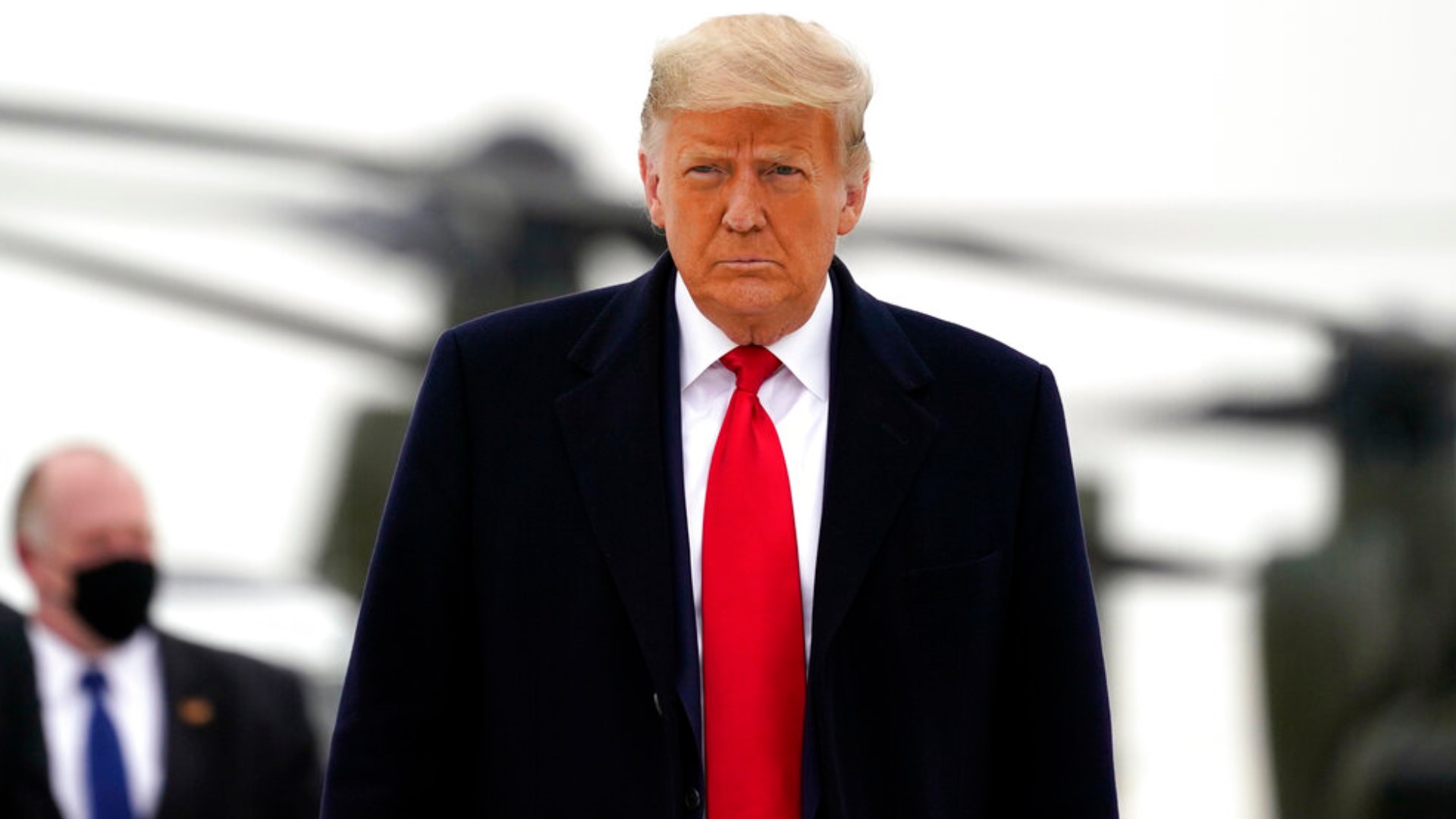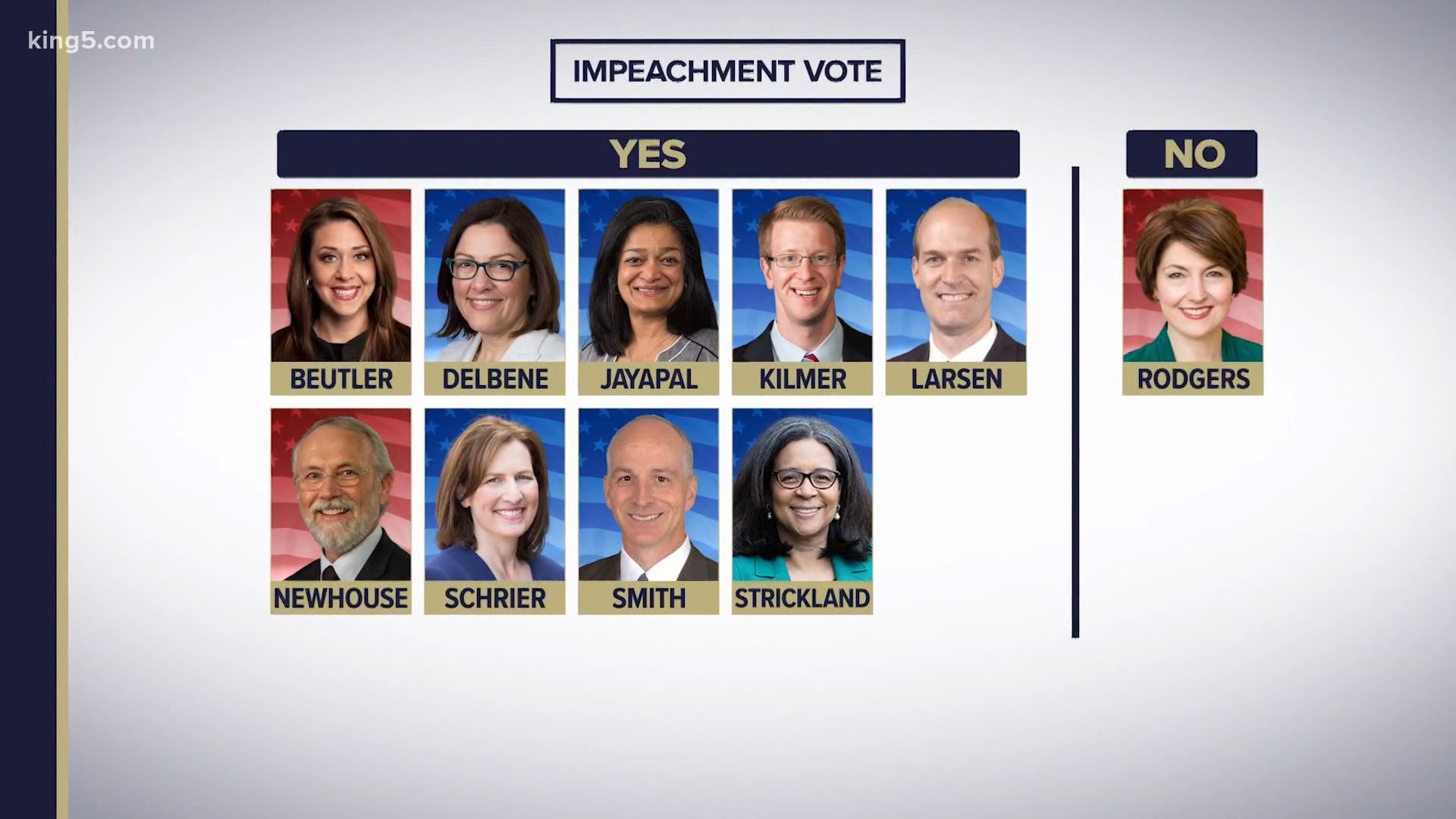On the surface, the vote to impeach President Donald Trump doesn't do much, with just a week left in office.
So what will Wednesday's House vote actually accomplish?
Patrick Schoettmer, a political science professor at Seattle University, said Wednesday's vote has a lot to do with the long term health of the government, especially as the Senate begins its trial.
"It's partly a message," explained Schoettmer. "It's also, in essence, the congressional immune system kicking in. They perceived a threat, just like the body perceives a threat from the virus."
Even if Trump is no longer in office, Congress still has options to penalize the president.
"If they vote to remove the president, but he's no longer in office, that still opens up a lot of punishments that they could impose on the president, up to and including making it so that he could never hold any office ever again, which would make sure that he could not become president in 2024," said Schoettmer.
Schoettmer said the next few weeks could be telling, as internal conflicts among the Republican Party continue to boil over.
"One thing to keep in keep our eye on, both as the Senate moves towards impeachment and further down the road, is whether or not the Republican Party is going to be able to pull together after this, or if we're going to begin to see the Republican Party fall apart," said Schoettmer.
Schoettmer said this moment is a turning point in American politics.
"The problem is, the road we're turning down to is really dark, and we don't know what lies ahead," he said.


